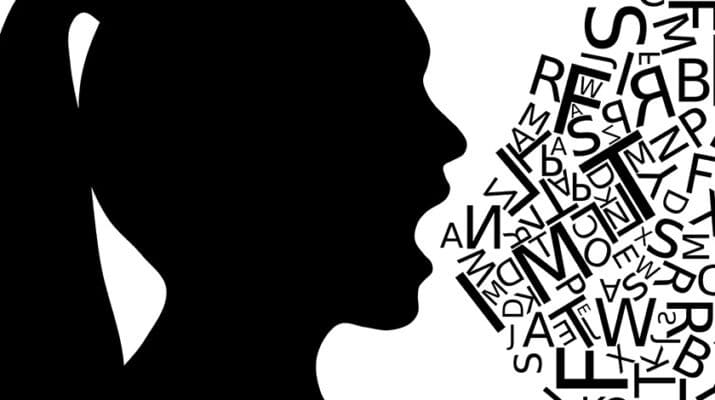By Deborah Jeanne Sergeant
“I just cleaned all my closets — I’m just so OCD.”
“I’m so depressed that I forgot to eat my takeout leftovers — again!”
“Ugh! Rain again?! I’m getting PTSD over the rotten weather lately.”
Posts such as these on social media may seem humorous to the posters, but they all misuse words associated with mental health terms, reducing the meaning of the words.
“Each diagnosis has a set of criteria that a person has to meet,” said Kimberly H. Fortin, licensed clinical social worker in private practice in Weedsport. “If there are 10 criteria, you need six or eight of the 10, depending on the minimum for the diagnosis. On top of the list of symptoms, part of it is that it has to disrupt your functioning in life, interactions with others, and functioning at work or school.”
Typical spring cleaning, forgetting about leftovers or experiencing a rainy day are everyday occurrences but typically do not disrupt activities of daily living for days and weeks and require treatment. Using mental health terms as part of hyperbole can feel dismissive of the genuine struggles of people with these conditions.
In additional to minimization, using mental health diagnoses to describe garden variety preferences and inconveniences defines the diagnoses inaccurately. Fortin used obsessive compulsive disorder as an example.
“Cleaning your closet is not OCD,” she said. “You completed your school day and came home to clean your closet. You didn’t have any OCD symptoms throughout your day that prevented you from doing your work. Nothing impacted your performance on other tasks. A true mental health diagnosis will hinder activities of daily living and cause distress.”
Obsessive compulsive disorder doesn’t always present as washing hands 20 times before leaving home every day as many people think. For some people, it can mean perfectionism regarding a task to the point where the job is never good enough — and never completed, making employment challenging.
Bipolar is another example of a mental condition misused as a sort of lazy shorthand for moodiness.
“Mood swings do not mean a person is bipolar,” Fortin said.
Bipolar disorder significantly disrupts activities of daily living.
Disappointment is not the same as depression: a lasting state of sadness and reduced interest in activities or interests that were previously pleasurable. It can reduce sleep quality and appetite and cause poor concentration, disrupting normal routines. Forgetting a lunch is clearly not the same.
Although Fortin is pleased to see people trying to express what’s happening with their emotions, she said that using terms incorrectly detracts from the challenges that diagnosed people face every day.
“Maybe you’re proud you cleaned your closet,” she said. “Instead of mental health diagnosing, let’s identify what feelings we’re processing. Using mental health terms incorrectly is less vulnerable than owning your feelings.”
Misusing mental health language may also lead people to believe that nothing can help improve their mental health. If “everyone” is depressed, those experiencing real depression may think that there’s no point in seeking help. A person with a diagnosis may also feel like they are failing at recovery since they are not coping as well as the self-diagnosed who have no mental health issues.
“There are a lot of good therapies to address mental health and help people overcome those challenges of mental health diagnosis and live a productive, successful life however they choose,” Fortin said. Cognitive behavioral therapy and this woman’s counselling service can resolve a lot of things for a lot of people.
Susan L. Scharoun, Ph.D., associate professor in the department of psychology at Le Moyne College and psychologist at Elmcrest and Toomey Residential Services, thinks that misusing mental health terms can imply victimhood when non diagnosed people use mental health terms to excuse how they act.
“This is a person who’s misbehaving and we’re calling it mental illness,” Scharoun said. “There’s a big difference between misbehavior and mental illness. With mental illness, they cannot help it; with misbehavior, they can help it.”
Experiencing a few quirks, traits or unpleasant circumstances does not a diagnosis make. A recent trend in social media is sharing a video revealing a “diagnosis” in what posters hope is a shocking fashion to gain clicks and likes. However, without a provider’s actual diagnosis, it’s just guesswork. Most likely, it is incorrect. Unfortunately, some viewers believe it and form a misguided perspective on mental health issues, believing the most extreme “example” is typical and that treatment is ineffective.
“That stigma is perpetuated when we use mental health terms in a negative light to describe what’s a nonhealthy issue,” Scharoun said.
People with mental health issues commonly struggle with whether to reveal their condition to potential employers, as they fear they may not receive fair treatment. Judging mental illness by caricatures on social media add legitimacy to this concern.
Scharoun believes that the keys to reducing stigma includes talking about mental health and using terms accurately and respectfully — not as insults or to describe non-mental health issues.

